Mark Wahlberg’s 10 Best Movies
We look back at the best-reviewed work of the Patriots Day star.
During the early 1990s, while he was flashing his abs and modeling underwear as Marky Mark, few could have suspected that beneath Mark Wahlberg’s b-boy cap lurked the soul of a thespian. Now, of course, that’s no longer the case — with more than 20 roles and an Academy Award nomination to his credit, Wahlberg has compiled an impressive filmography over the last 15-plus years. With his latest film, Patriots Day, opening this weekend, we thought now would be the perfect time to take a look back at his best-reviewed major roles. It’s time for Total Recall!
10.
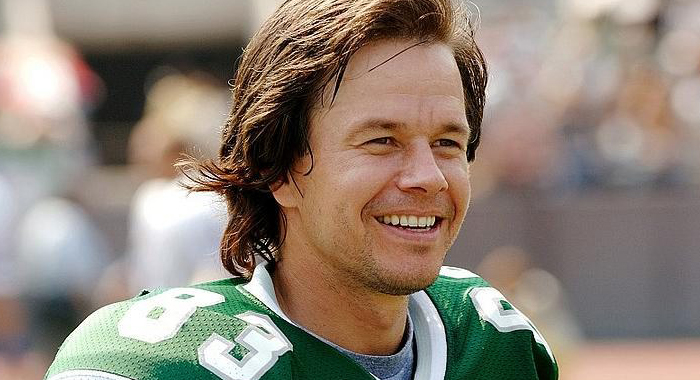
He isn’t a household name, but Vince Papale is a legend among hardcore football fans — particularly in Philadelphia, where he overcame the odds to earn a spot on the Eagles’ roster and became one of the oldest rookies in the history of the NFL — as well as a living embodiment of the team’s scrappy, blue-collar image. Though Wahlberg is from Boston, he knows a thing or two about seemingly impossible dreams that come true, and his performance helped give Invincible a sweaty leg up on the many inspirational sports dramas in theaters at the time. “It may seem that Invincible takes too long to get to the football,” wrote Gary Dowell of the Baltimore City Paper. “But by the time it does get down to it, we’ve invested enough in Wahlberg and Kinnear to give a damn about the outcome of the all-important Big Game.”
9.
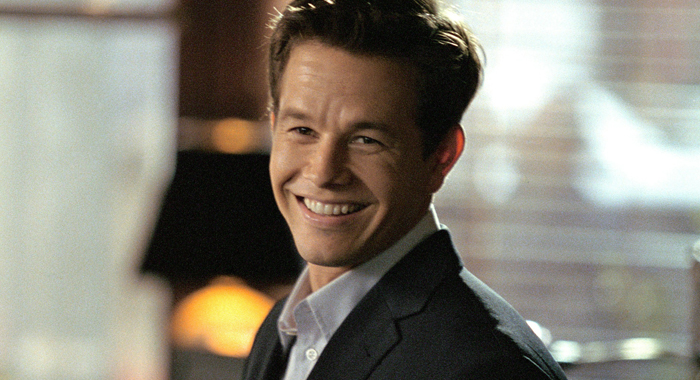
Part of the wave of heist flick remakes that gave us new versions of The Thomas Crown Affair and Ocean’s Eleven, F. Gary Gray’s “homage” to the 1969 Michael Caine caper The Italian Job put Wahlberg in the middle of a double-crossing, gold-thieving band of criminals that included Charlize Theron, Jason Statham, Mos Def, and Seth Green. Though critics were quick to point out that the new Job didn’t really add much to the original — and the movie was arguably bettern-known for its heavy use of trendy Mini Coopers than anything that actually transpired in the plot — it offered 111 minutes of agreeably undemanding action thrills. As Jon Niccum of the Lawrence Journal-World wrote, “Filled with easy-to-like characters, innovative action sequences and a story rife with momentum, the movie is as endearingly zippy as the BMW MINIs the heroes use to pull off their scam.”
8.
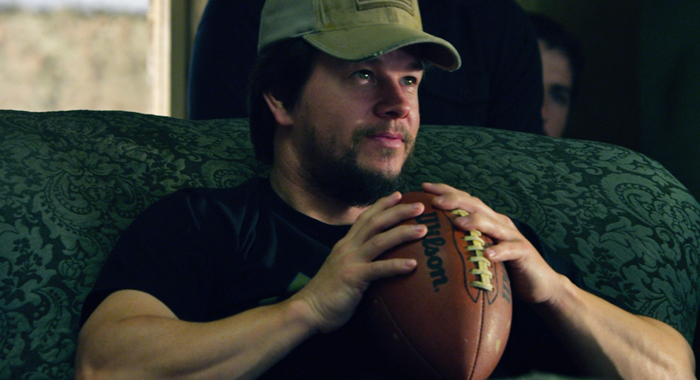
Having already starred in arguably the definitive Gulf War movie (Three Kings), Wahlberg may have been tempting fate when he signed on for Lone Survivor, writer-director Peter Berg’s adaptation of the nonfiction bestseller from Marcus Luttrell and Patrick Robinson inspired by Luttrell’s experiences in Afghanistan during Operation Red Wings. But looking back, it isn’t hard to see what drew Wahlberg to the project; opening wide in early 2014, it managed to escape the dismal commercial fate afforded many modern-day war movies, as well as drawing praise from the majority of critics, who were able to see past Survivor’s occasionally troublesome subtext and appreciate the film’s genuinely harrowing action sequences and generally persuasive performances. “Lone Survivor‘s lack of suspense never works against it,” argued Dana Stevens for Slate. “If anything, the fact that the outcome is, at least roughly, known in advance only adds to the film’s sickening tension.”
7.
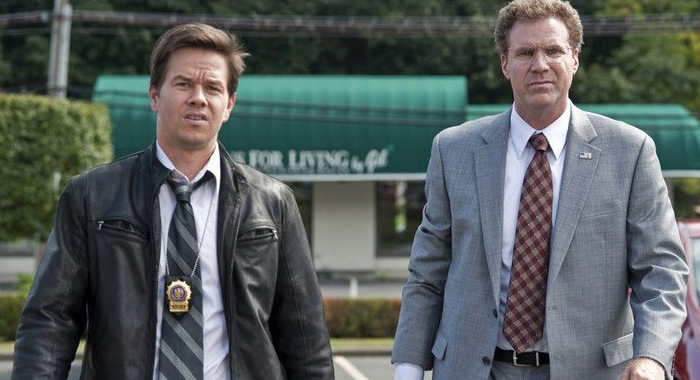
Sometimes it seems like all Will Ferrell needs in order to be funny is a sufficiently broad premise and a solid foil to help ground his lunatic behavior in something like the real world. With 2010’s The Other Guys, he got both — a screenplay from Chris Henchy and Adam McKay (the latter of whom directed) about a serious-but-unlucky cop (Mark Wahlberg) who’s saddled with a milquetoast desk jockey (Ferrell) for a partner. When the best cops in town (played by Dwayne Johnson and Samuel L. Jackson) are incapacitated, the “other guys” step into the breach and blow the lid off a massive conspiracy involving an unscrupulous billionaire (Steve Coogan) and his even more ruthless client (Anne Heche) — firing off belly laughs along the way. Not the most novel setup, perhaps, but it’s all Wahlberg and Ferrell needed to rack up nearly $225 million at the box office, as well as earn the admiration of critics like the Los Angeles Times’ Betsy Sharkey, who chuckled, “The plot doesn’t always hold water and it has a tendency to ramble, but they don’t seem to care. And honestly, neither should you.”
6.
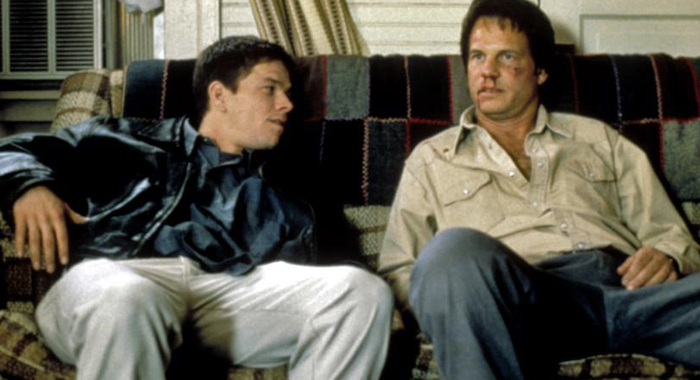
Truly entertaining stories about con men are difficult to come by — and even the best of the bunch tend to focus on the thrill of the grift, leaving the characters themselves in the background. 1997’s Traveller reversed the formula, examining the knotty feuds and traditions of a tight-knit clan of small-time North Carolina con artists, in particular Bokky (Bill Paxton), a Traveller whose life is thrown out of balance when he crosses paths with the son of an exiled member (Mark Wahlberg) and develops an honest emotional attachment to one of his victims (Julianna Margulies). It isn’t one of Wahlberg’s better-known movies, but it was a hit with critics like ReelViews’ James Berardinelli, who wrote, “The script is smart and sneaky — by never telling the audience more than is necessary, it develops a keen sense of suspense that persists until the gritty final reel.”
5.
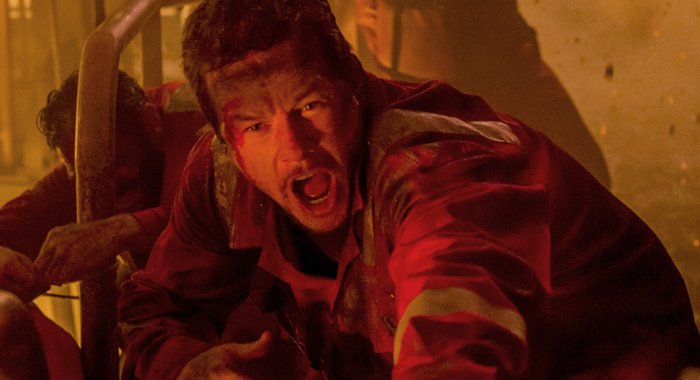
Mark Wahlberg’s carved out a pretty good career for himself playing heroes, but playing a guy who helped save the day in an actual tragedy — particularly one that resulted in lives lost and the worst environmental disaster in U.S. history — takes a little more tact than your average action thriller. It’s a line he managed to walk fairly successfully with Deepwater Horizon, which saw him reuniting with Lone Survivor director Peter Berg to dramatize the titular oil rig’s 2010 spill with a combination of excitement and respect for the gravity of the situation. Leading an impressive cast rounded out by Kurt Russell, John Malkovich, and Kate Hudson, Wahlberg played real-life ship worker Mike Williams, giving audiences a hero to root for — and helping outline the case against the corporate malfeasance that created the problem. “Deepwater Horizon achieves that impossible balance,” wrote Lindsey Bahr of the Associated Press, calling it “a tribute to the workers who both perished and survived that day and a searing critique of the rotten system that put them there in the first place.”
4.
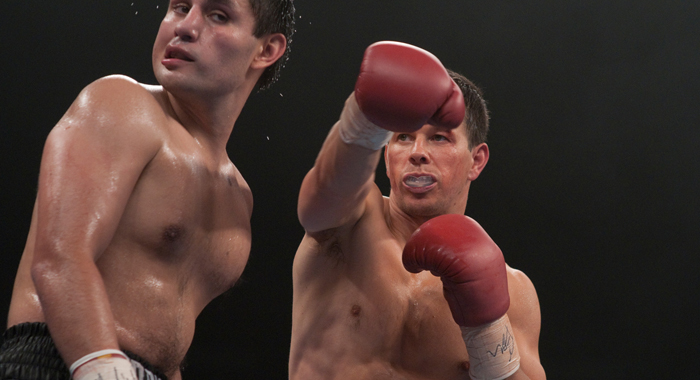
David O. Russell clearly enjoys working with Mark Wahlberg. After striking critical paydirt with Three Kings and getting him to flex his comedic muscle with I Heart Huckabees, Russell again turned to his former leading man for The Fighter, a dramatization of the real-life story of welterweight boxing champ “Irish” Micky Ward, the Massachusetts legend who teamed up with his brother (and trainer) Dicky (Christian Bale) to duke out a triumph of sorts over their difficult upbringing. Wahlberg was one of the few Fighter stars who didn’t earn an Academy Award nomination for his work — Bale took home a Best Supporting Actor Oscar — but given how long and how vigorously he fought to help bring the movie to the big screen, the movie’s warm critical reception and $129 million box office had to serve as a pretty sweet vindication. “The Fighter deftly manages to be equal parts character drama and sports film without giving short shrift to either,” wrote Joshua Starnes for ComingSoon. “Containing a couple of the best performances of the year, it is in turn harrowing and heartwarming.”
3.
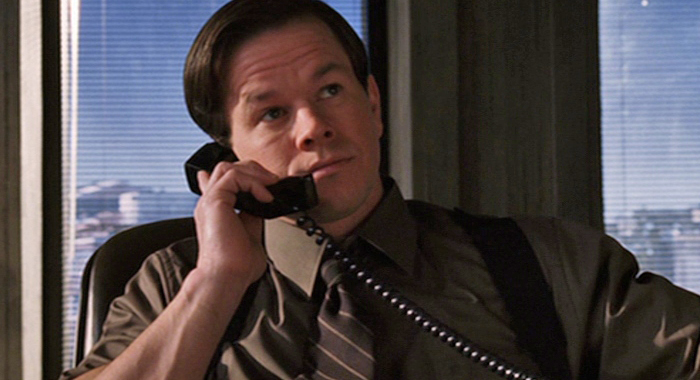
We love to hate remakes, but not all of them are created equal; for proof, look no further than The Departed, Martin Scorsese’s expertly cast treatment of the 2002 Hong Kong hit Infernal Affairs. On the surface, it might look like just another crime thriller where no one is who or what he seems — but this kind of story is all in the telling, and Scorsese had a tightly wound William Monahan screenplay to work from, as well as a bruising set of leads in Matt Damon, Leonardo DiCaprio, Jack Nicholson, and Wahlberg. A four-time Oscar winner, The Departed finally earned Scorsese his long-overdue Best Picture and Best Director honors, and triggered an avalanche of praise from critics like Terry Lawson of the Detroit Free Press, who applauded, “It’s a thinking fan’s thriller, a movie involving multiple fully dimensional characters, multiple story lines and edge-of-your-seat twists and swerves, stylized to just the edge of believability.”
2.
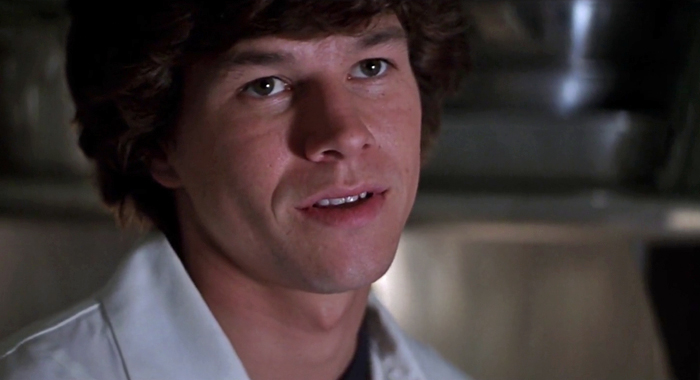
A year after terrorizing Reese Witherspoon in Fear, Wahlberg made the leap to Serious Actor territory with the starring role in Paul Thomas Anderson’s ensemble opus about life in the porn industry, Boogie Nights. As the genitally gifted Eddie Adams, a.k.a. Dirk Diggler, Wahlberg took a character that could have been a cheesy joke and imbued him with palpable emotion. One of the year’s biggest critical winners, Boogie Nights started Anderson and Wahlberg’s careers in earnest, earned co-star Burt Reynolds some of the best reviews of his career, and enjoyed a thumbs up from Roger Ebert, who wrote, “As a writer and director, Paul Thomas Anderson is a skilled reporter who fills his screen with understated, authentic details.”
1.

Anyone who wonders why audiences refuse to see movies about the wars raging in the Middle East would do well to study the example set by David O. Russell, who waited eight years before making the Gulf War picture Three Kings — and even then, the conflict served mainly as grist for a heist storyline involving a trio of U.S. Army Reservists (George Clooney, Ice Cube, and Wahlberg) making plans to steal plundered Kuwaiti gold. Widely recognized as a sharp, stylish satire today, Kings wasn’t a huge commercial success during its initial theatrical run, but it earned instant admiration from critics like Sean Means of Film.com, who called it “Possibly the best wartime comedy since Robert Altman’s M*A*S*H.”







